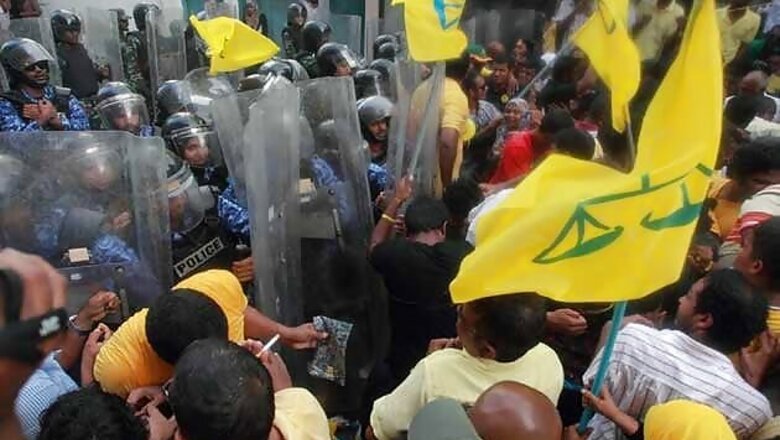
views
Male: Maldives police have stopped a fresh presidential poll that was to be held on Saturday, the archipelago's Election Commission said, despite a court ruling that the poll could go ahead.
The Indian Ocean chain of tropical holiday islands has been in turmoil since February 2012 when former president Mohamed Nasheed, who won the Maldives' first free elections in 2008, was ousted in disputed circumstances his supporters called a coup.
The latest delay could see a rise in violence. Nasheed's supporters have been demanding a free and fair election and have staged violent protests since he was ousted.
Elections Commissioner Fuwad Thowfeek said police had surrounded the commission's secretariat.
"We cannot proceed with the election if police are obstructing it," Thowfeek told a news conference. He said the commission was disappointed and frustrated and that police had "overstepped their authority".
Thowfeek also doubted the election could be held before the end of the current presidential term on November 11.
Commission member Ali Mohamed Manik said: "This is a dark day for democracy".
Nasheed looked set to win a run-off vote on September 28, after he came first in a September 7 first round. The Supreme Court cancelled the run-off, citing first-round fraud, despite international observers saying the election was free and fair.
The court later ordered a fresh election by October 20 and a run-off by November 3, if required.
The Supreme Court upheld that decision in an early-morning ruling on Saturday after a request by the election commission.
There was some confusion over whether the election could go ahead with or without candidates signing a new voter registry.
The voter registry, which Nasheed's party has signed, was not ready by Friday because of objections by some of his rivals.
The police, who played a major role in ousting Nasheed, said they would not support an election held "in contravention of the Supreme Court verdict and guidelines".
Nasheed was forced to resign last year after mutinying police and military forces armed opposition demonstrators and gave him an ultimatum.
In the latest election he faces resort tycoon Gasim Ibrahim, who was finance minister under Maumoon Abdul Gayoom, who ruled for 30 years and was considered a dictator by opponents and rights groups. The incumbent president, Mohamed Waheed, is not contesting the election.
Critical issues the new president will face include a rise in Islamist ideology, human rights abuses and a lack of investor confidence after Waheed's government cancelled the country's biggest foreign investment project with India's GMR Infrastructure.
Nasheed, who once held a cabinet meeting under water, with members in scuba gear, to highlight the danger of rising sea levels, won the September 7 polls with 45.45 per cent of the vote, short of the 50 per cent needed to avoid a run-off.
Tension has been high in recent weeks. Men in masks fire-bombed a television station that backs Nasheed on October 7.



















Comments
0 comment